|
Books Should Be Free Loyal Books Free Public Domain Audiobooks & eBook Downloads |
|
|
Books Should Be Free Loyal Books Free Public Domain Audiobooks & eBook Downloads |
|
Short Stories |
|---|
|
Book type:
Sort by:
View by:
|
By: Ambrose Bierce (1842-1914?) | |
|---|---|
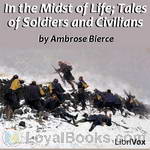 In the Midst of Life; Tales of Soldiers and Civilians
In the Midst of Life; Tales of Soldiers and Civilians
These stories detail the lives of soldiers and civilians during the American Civil War. This is the 1909 edition. The 1909 edition omits six stories from the original 1891 edition; these six stories are added to this recording (from an undated English edition). The 1891 edition is entitled In The Midst Of Life; Tales Of Soldiers And Civilians. The Wikipedia entry for the book uses the title Tales of Soldiers and Civilians. Ambrose Gwinnett Bierce (June 24, 1842 – after December 26, 1913) was an American editorialist, journalist, short story writer, fabulist and satirist... | |
By: Joel Chandler Harris (1848-1908) | |
|---|---|
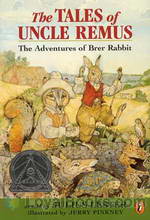 Uncle Remus
Uncle Remus
Bearing a striking resemblance to Aesop of Aesop's Fables fame, American author Joel Chandler Harris' Uncle Remus is also a former slave who loves to tell simple and pithy stories. Uncle Remus or to give it its original title, Uncle Remus: His Songs and His Sayings was published in late 1880 and received instant acclaim. The book was reviewed in hundreds of journals and newspapers across the country, leading to its immense success, both critical and financial. “Remus” was originally a fictional character in a newspaper column... | |
By: Saki (1870-1916) | |
|---|---|
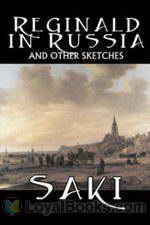 Reginald
Reginald
Saki was the pen name of the British author Hector Hugh Munro (1870 – 1916). His witty, biting and occasionally odd short stories satirised Edwardian culture. Saki is considered a master of the short story and has been compared to O. Henry and Dorothy Parker as well as Noel Coward and Oscar Wilde (who clearly influenced Saki). His first collection of short stories, Reginald, was published by Methuen Press in 1904 though these stories first appeared in the ‘Westminster Gazette’. The stories... | |
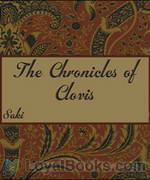 The Chronicles of Clovis
The Chronicles of Clovis
This is the third collection of short stories by Saki, following on from “Reginald” and “Reginald in Russia”. Although some of the stories have characters that do not appear elsewhere in the collection, many of them are loosely centred round the young Clovis Sangrail (effectively a reincarnation of Reginald). | |
 Beasts and Super-Beasts
Beasts and Super-Beasts
Saki (December 18, 1870 – November 14, 1916) was the pen name of British author Hector Hugh Munro. Saki’s world contrasts the effete conventions and hypocrisies of Edwardian England with the ruthless but straightforward life-and-death struggles of nature. Nature generally wins in the end. | |
By: Willa Sibert Cather (1873-1947) | |
|---|---|
 Collection Of Stories, Reviews And Essays
Collection Of Stories, Reviews And Essays
Stories and essays by Willa Cather | |
By: Sir Arthur Conan Doyle (1859-1930) | |
|---|---|
 Danger! and Other Stories
Danger! and Other Stories
This is a volume of short stories by the famous Arthur Conan Doyle. | |
By: Walter Crane (1845-1915) | |
|---|---|
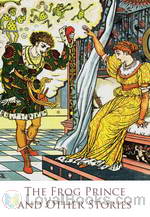 The Frog Prince and Other Stories
The Frog Prince and Other Stories
The three charming stories contained in The Frog Prince and Other Tales include a less-known fairy-tale called Princess Belle-Etoile besides the title story and Alladin and the Wonderful Lamp. Published in 1874, the tales are re-told by the famous illustrator Walter Crane, who has also provided some of the most lovely illustrations in the book. The book makes an ideal gift and both parents and children will certainly enjoy it. It's perfect for bedtime story-reading sessions and kids would love gazing at the beautiful Greek-style illustrations that are scattered throughout the book... | |
By: Harry Harrison (1925-) | |
|---|---|
 Arm of the Law
Arm of the Law
A quiet backwater outpost on Mars gets a surprise in the form of a new police recruit - in a box! Yep, it's a prototype robot cop sent to the backwater station for testing. And Harrison tells the strange, funny and scary things that begin to happen after that, as only he can. | |
By: Louis Ginzberg (1873-1953) | |
|---|---|
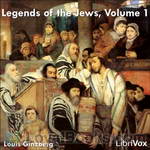 Legends of the Jews
Legends of the Jews
Rabbi Louis Ginzberg was one of the outstanding Talmudists of the twentieth century. He was born on November 28, 1873, in Kovno, Lithuania; he died on November 11, 1953, in New York City. Ginzberg taught at the Jewish Theological seminary from 1903 to 1953. For 50 years, he trained two generations of Conservative Rabbis.The Legends of the Jews is an epic 7-volume compilation of traditional Jewish stories loosely related to the Bible. Volumes 1-4 contain the stories, while volumes 5-7 contain Ginzberg’s notes and commentary... | |
By: Rabindranath Tagore | |
|---|---|
 Mashi and Other Stories
Mashi and Other Stories
A collection of short stories written iin English by the Nobel prize winning Bengali writer. | |
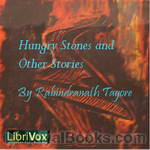 The Hungry Stones and Other Stories
The Hungry Stones and Other Stories
This is a collection of short stories written by the Nobel Laureate Rabindranath Tagore. The stories contained in this volume were translated by several hands. The version of The Victory is the author's own work. The seven stories which follow were translated by Mr. C. F. Andrews, with the help of the author's help. Assistance has also been given by the Rev. E. J. Thompson, Panna Lal Basu, Prabhat Kumar Mukerjii, and the Sister Nivedita. | |
By: John Kendrick Bangs (1862-1922) | |
|---|---|
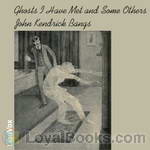 Ghosts I Have Met and Some Others
Ghosts I Have Met and Some Others
New York-born John Kendrick Bangs was associate editor and then editor of Life and Harper magazines, eventually finding his way into the Humour department. Here he began to write his own satire and humour. Ghosts I Have Met and Some Others is a delightfully humourous collection of short tales relating encounters with ghosts. | |
 A Little Book Of Christmas
A Little Book Of Christmas
Summary: Four short Christmas stories, a bit sentimental, but still affecting and worthwhile. Plus Four Christmas verses. (Summary by David Wales) | |
 Over The Plum Pudding
Over The Plum Pudding
Great Caesar’s ghost and shades of A Christmas Carol! Stories – some ghostly, some Christmas, some humorous, some all three -- twelve of them by a master story teller and humorist of the late nineteenth and early twentieth centuries. | |
By: Lord Dunsany (1878-1957) | |
|---|---|
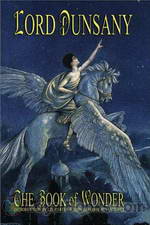 The Book of Wonder
The Book of Wonder
“Come with me, ladies and gentlemen who are in any wise weary of London: come with me: and those that tire at all of the world we know: for we have new worlds here.” – Lord Dunsany, the preface to “The Book of Wonder” | |
 Time and the Gods
Time and the Gods
Lord Dunsany (24 July 1878 – 25 October 1957) was a London-born Anglo-Irish writer and dramatist notable for his work in fantasy. He was influenced by Algernon Swinburne, who wrote the line “Time and the Gods are at strife” in his 1866 poem “Hymn to Proserpine”, as well as by the fairy tales of the Brothers Grimm and Hans Christian Andersen. In turn, Dunsany’s influence was felt by H. P. Lovecraft and Ursula K. Le Guin. Arthur C. Clarke corresponded with Dunsany between 1944 and 1956. Those letters are collected in the book Arthur C. Clarke & Lord Dunsany: A Correspondence. Time and the Gods, a series of short stories written in a myth-like style, was first published in 1906. | |
By: Robert W. Chambers (1865-1933) | |
|---|---|
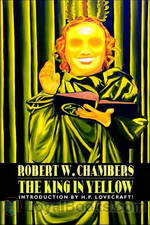 The King in Yellow
The King in Yellow
Robert W. Chambers (1865-1933) studied art in Paris in the late 80’s and early 90’s, where his work was displayed at the Salon. However, shortly after returning to America, he decided to spend his time in writing. He became popular as the writer of a number of romantic novels, but is now best known as the author of “The King In Yellow”. This is a collection of the first half of this work of short stories which have an eerie, other-worldly feel to it; but the stories in the second half are essentially love stories, strongly coloured by the author’s life as an artist in France... | |
By: Emma Orczy (1865-1947) | |
|---|---|
 The League of the Scarlet Pimpernel
The League of the Scarlet Pimpernel
Written by Baroness Orczy and first published in 1919, The League of the Scarlet Pimpernel is a sequel book to the classic adventure tale, The Scarlet Pimpernel. The book consists of eleven short stories about Sir Percy Blakeney’s exploits in rescuing various aristos and French citizens from the clutches of the guillotine. The stories which are listed below, are set in 1793 but appear in no particular order. They occasionally refer to events in other books in the series. | |
By: Henry van Dyke (1852-1933) | |
|---|---|
 Blue Flower
Blue Flower
"Sometimes short stories are brought together like parcels in a basket. Sometimes they grow together like blossoms on a bush. Then, of course, they really belong to one another, because they have the same life in them. ...There is such a thought in this book. It is the idea of the search for inward happiness, which all men who are really alive are following, along what various paths, and with what different fortunes! Glimpses of this idea, traces of this search, I thought that I could see in certain tales that were in my mind,—tales of times old and new, of lands near and far away... | |
By: Anton Chekhov (1860-1904) | |
|---|---|
 The Tales of Chekhov
The Tales of Chekhov
This is the first of thirteen volumes of Anton Chekhov’s short stories, translated by Constance Garnett. Anton Chekhov was a Russian doctor who turned to fiction as a hobby, and quickly blossomed into one of the masters of the short story genre. Though he is arguably best known for his dramatic works, such as The Cherry Orchard, his stories are widely considered to be some of the most perfect examples of short fiction ever written. Constance Black Garnett was an English housewife who taught herself Russian as a hobby, and subsequently introduced the English-speaking world to some of the greatest Russian authors, including Chekhov and Dostoevsky... | |
By: Algernon Blackwood (1869-1951) | |
|---|---|
 Four Weird Tales
Four Weird Tales
Four stories: The Insanity of Jones, The Man Who Found Out, The Glamour of the Snow, and Sand. Tales by one the greatest practitioners of supernatural literature. Reincarnation, the Occult, and mystery. | |
By: Susan Coolidge (1835-1905) | |
|---|---|
 Not Quite Eighteen
Not Quite Eighteen
Not Quite Eighteen is a delightful collection of children’s stories that range from moral to whimsical. From unfinished fairy tales and daydreams about a pony who kept shop to a lesson on presence of mind, these anecdotes will entertain as well as improve the mind. ( | |
By: Philip K. Dick (1928-1982) | |
|---|---|
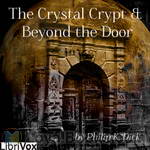 The Crystal Crypt & Beyond the Door
The Crystal Crypt & Beyond the Door
Two early science fiction stories by the wonderful craftsman, Philip K. Dick. In the Crystal Crypt, taken from the 1954 Planet Stories, the war between Mars and Terra is about to erupt and earth has only merchants and salesmen to fight; can they carry out their mission? Beyond the Door is a story that asks and answers the question: what lives beyond the door? And is it dangerous? | |
 Beyond Lies the Wub & The Skull
Beyond Lies the Wub & The Skull
Two stories in the inimitable Philip Dick style. What is a Wub? A 400 pound slovenly, fat, ungainly, drooling animal that looks like a cross between a walrus and an enormous hog? Well, yes that is pretty much what he looks like and for 50 cents, a good bargain no matter how he tastes. The hungry spaceship crew expect to find out. Of course the Wub may not entirely agree but it doesn't have much to say about it. The second story, The Skull, is a skilful mesh of time travel, unscrupulous governments, prisoners, and religion. With an assassin thrown in for good measure. Enjoy! | |
By: Émile Zola (1840-1902) | |
|---|---|
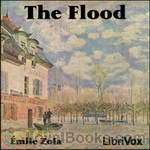 The Flood, trans. by an unknown translator
The Flood, trans. by an unknown translator
A well-to-do French farm family is destroyed by a flood. The story, thrilling to the very end, is told from the point of view of the family’s 70-year-old patriarch. The story speaks of the helplessness of mankind in the face of the forces of nature. | |
By: Heinrich Hoffmann (1809-1894) | |
|---|---|
 Slovenly Betsy
Slovenly Betsy
Hienrich Hoffmann was a German psychiatrist and doctor. He had written poetry and sketches for his son, and was persuaded to have a collection of these printed.The stories were not perceived as cruel or overly moral by Hoffmann's contemporaries.This American version contains a few of the stories from the original German "Struwwelpeter" publication. | |
By: Katherine Mansfield (1888-1923) | |
|---|---|
 At The Bay
At The Bay
Katherine Mansfield was a prominent Modernist writer of short fiction, and one of New Zealand’s best-known authors. “At the Bay” is a story from her collection The Garden Party. | |
By: Guy de Maupassant (1850-1893) | |
|---|---|
 Boule de Suif
Boule de Suif
Boule de Suif (1880) is a short story by the late-19th century French writer Guy de Maupassant. It is arguably his most famous short story, and is the title story for his collection on the Franco-Prussian War, entitled "Boule de Suif et Autres Contes de la Guerre" ("Boule de Suif and Other Stories of the War"). John Ford said that his film Stagecoach was in many ways a western rewrite of Boule de Suif. | |
By: Keith Laumer (1925-1993) | |
|---|---|
 Gambler's World & The Yillian Way
Gambler's World & The Yillian Way
Here are two stores starring the always unconventional Terrestrial Diplomat, Retief. As a diplomat, Retief does not always follow procedure. Well the truth is that he almost never follows procedure but somehow his wit and strength manage to salvage most situations from the bumbling of his superiors. His sardonic approach to inter galactic negotiations in these two stories is a delight to hear. Despite everything, he manages to save the day and come out on top. | |
By: Joseph Jacobs (1854-1916) | |
|---|---|
 Indian Fairy Tales
Indian Fairy Tales
This book is a fine collection of Indian fairy tales, some are folklore, some are from the Jataka tales, and some from panchatantra. | |
By: John Ruskin | |
|---|---|
 The King of the Golden River
The King of the Golden River
When three brothers mortally offend Mr. Southwest Wind, Esquire, their farm is laid waste and their riches lost. Desperate for money, the brothers become goldsmiths and melt down their remaining treasures . . . only to find that the spirit of the King of the Golden River resides with a molded tankard, and knows the secret of the riches of the Golden River. (Introduction by Xenutia) | |
By: Edna Ferber (1865-1968) | |
|---|---|
 Buttered Side Down
Buttered Side Down
"And so," the story writers used to say, "they lived happily ever after." Um-m-m—maybe. After the glamour had worn off, and the glass slippers were worn out, did the Prince never find Cinderella's manner redolent of the kitchen hearth; and was it never necessary that he remind her to be more careful of her finger-nails and grammar? After Puss in Boots had won wealth and a wife for his young master did not that gentleman often fume with chagrin because the neighbors, perhaps, refused to call on the lady of the former poor miller's son? It is a great risk to take with one's book-children... | |
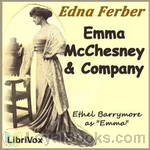 Emma McChesney and Company
Emma McChesney and Company
This is the final volume in the trilogy following the smart, stylish, divorced and independent businesswoman Emma McChesney in her career from stenographer, then drummer (traveling salesman) to owner of her own company. (The first was Roast Beef, Medium and the second Personality Plus). Edna Ferber first gained success with these stories and later went on to write Show Boat, Giant and other well known books. First published in 1915, Emma's son, Jock, has moved to Chicago with his new wife. Emma decides to sell in South America and proves she has not lost her magic touch... | |
By: Selma Lagerlöf (1858-1940) | |
|---|---|
 Invisible Links
Invisible Links
Selma Lagerlöf was born in Vaermland, Sweden, in 1858 and enjoyed a long and very successful career as a writer, receiving the Nobel-Price in Literature in 1909. She died in Vaermland in 1940. Invisible Links (Osynliga länkar) is a collection of short stories with an underlying theme about the links that influence and guide people’s actions and lives. It was first published in 1894 and the English translation in 1895. The stories are often set in Lagerlöf’s Vaermland, but they also depict legends and history of Sweden, and some have connections to other works by Lagerlöf. Invisible Links is a good introduction to the writings of Selma Lagerlöf. | |
By: Sholem Aleichem (1859-1916) | |
|---|---|
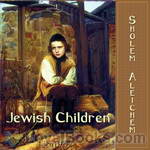 Jewish Children (Yudishe Kinder)
Jewish Children (Yudishe Kinder)
Although written from a child’s perspective, this is not a kids book but a series of funny, poignant, and sometimes disturbing stories about life in a late 19th-century Russian-Jewish village — the world of my grandparents. Sholem Rabinovich (1859-1916) was born in Pereiaslav, Ukraine and later immigrated to New York. His short stories about Tevye and his daughters were freely adapted into the musical FIDDLER ON THE ROOF. Rabinovich’s will contained the following injunction: “Let my name be recalled with laughter or not at all.” His translator, Hannah Berman, was Irish of Lithuanian descent.Some of these stories may be too intense for younger children. | |
By: William Dean Howells | |
|---|---|
 Christmas Every Day and Other Stories Told for Children
Christmas Every Day and Other Stories Told for Children
Five short delightful stories for children, told in the voice of "the papa" to "the girl" and "the boy." William Dean Howells (March 1, 1837 – May 11, 1920) was an American realist author and literary critic. Nicknamed "The Dean of American Letters", he was particularly known for his tenure as editor of the Atlantic Monthly as well as his own prolific writings, including the Christmas story "Christmas Every Day" and the novel The Rise of Silas Lapham. (Reader’s Note for story 3: A pony engine is a small locomotive for switching cars from one track to another.) | |
By: Carl Sandburg (1878-1967) | |
|---|---|
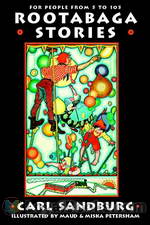 Rootabaga Stories
Rootabaga Stories
Carl Sandburg is beloved by generations of children for his Rootabaga Stories and Rootabaga Pigeons (which is not in the public domain), a series of whimsical, sometimes melancholy stories he originally created for his own daughters. The Rootabaga Stories were born of Sandburg’s desire for “American fairy tales” to match American childhood. He felt that the European stories involving royalty and knights were inappropriate, and so populated his stories with animals, skyscrapers, trains, corn fairies, and other colorful characters. | |
By: Ernest Bramah (1868-1942) | |
|---|---|
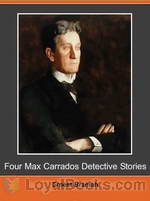 Four Max Carrados Detective Stories
Four Max Carrados Detective Stories
Ernest Bramah is mainly known for his ‘Kai Lung’ books – Dorothy L Sayers often used quotes from them for her chapter headings. In his lifetime however he was equally well known for his detective stories. Since Sherlock Holmes we have had French detectives, Belgian detectives, aristocratic detectives, royal detectives, ecclesiastical detectives, drunken detectives and even a (very) few quite normal happily married detectives. Max Carrados was however probably the first blind detective. | |
By: Bret Harte (1836-1902) | |
|---|---|
 Mrs. Skagg's Husbands and Other Stories
Mrs. Skagg's Husbands and Other Stories
A collection of short stories set in the American West at the end of the 19th century. | |
By: Robert Barr (1849-1912) | |
|---|---|
 In a Steamer Chair and Other Stories
In a Steamer Chair and Other Stories
Thirteen short stories by one of the most famous writers in his day. Robert Barr was a British Canadian short story writer and novelist, born in Glasgow, Scotland. In London of the 1890s Barr became a more prolific author - publishing a book a year - and was familiar with many of the best selling authors of his day, including Bret Harte and Stephen Crane. Most of his literary output was of the crime genre, then quite in vogue. When Arthur Conan Doyle's Sherlock Holmes stories were becoming well known,... | |
By: Lucy Clifford (1846-1929) | |
|---|---|
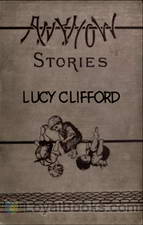 Anyhow Stories: Moral and Otherwise
Anyhow Stories: Moral and Otherwise
A collection of stories and poems for children by British novelist, journalist, and playwright Lucy Lane Clifford, better known during her lifetime as Mrs W.K. Clifford. She was famous with her mathematician husband for Sunday salons which attracted both scientists and literati. She was born in 1846 and died in 1929. Summary by Val Grimm | |
By: Jacob Grimm (1785-1863), Wilhelm Grimm (1786-1859), and Andrew Lang (1844-1912) (1785-1863) | |
|---|---|
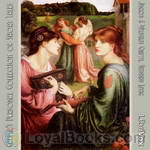 Personal Collection of Short Tales compiled by Carmie
Personal Collection of Short Tales compiled by Carmie
This is a selection of the fairy tales (in English) written by Jacob Ludwig Carl Grimm and Wilhelm Karl Grimm in the early 19th Century. These stories are fantastical and although aimed squarely at the flexible mind of a child which can assimilate much stranger concepts than an adult they are quite dark and occasionally brutal. The stakes can be quite high as in Rumpelstiltskin where a terrible bargain is made without due regard to possible future consequences and Tom Thumb who seems forever about to be imprisoned or sliced in two... | |
By: Sarah Cory Rippey | |
|---|---|
 The Goody-Naughty Book
The Goody-Naughty Book
The Goody-Naughty Book was originally published as two books back to back. Opening the book from one end, the reader experiences “The Goody Side” where the children are polite and thoughtful. However, turning the book over and beginning from the other side, one reads “The Naughty Side” where the children are lazy and irritable. These short, moral stories teach children the proper way to behave and that there are consequences if they don’t. | |
By: Eva March Tappan (1854-1930) | |
|---|---|
 Makers of Many Things
Makers of Many Things
How are friction matches made? How do rags and trees become paper? Who makes the dishes on our tables? Published in 1916, this children's book explains the origins of everyday items in an entertaining and informative way. There are plenty of illustrations, so please feel free to read along. | |
By: Various | |
|---|---|
 Best American Humorous Short Stories
Best American Humorous Short Stories
Eighteen short stories by famous and little known authors compassing the period 1839 - 1914. The editor's very extensive introduction is omitted from this Librivox audio book. | |
By: Charles King (1844-1933) | |
|---|---|
 Starlight Ranch And Other Stories Of Army Life On The Frontier
Starlight Ranch And Other Stories Of Army Life On The Frontier
Five stories of Army life in the mid to late 19th century. Charles King (1844 – 1933) was a United States soldier and a distinguished writer. He wrote and edited over 60 books and novels. Among his list of titles are Campaigning with Crook, Fort Frayne, Under Fire and Daughter of the Sioux. | |
By: Owen Wister (1860-1938) | |
|---|---|
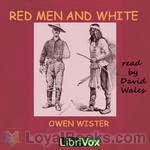 Red Men and White
Red Men and White
These eight stories are made from our Western Frontier as it was in a past as near as yesterday and almost as by-gone as the Revolution; so swiftly do we proceed. They belong to each other in a kinship of life and manners, and a little through the nearer tie of having here and there a character in common. Thus they resemble faintly the separate parts of a whole, and gain, perhaps, something of the invaluable weight of length; and they have been received by my closest friends with suspicion. ...When... | |
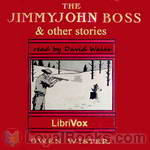 The Jimmyjohn Boss and Other Stories
The Jimmyjohn Boss and Other Stories
This is the fifth published book of Owen Wister, author of the archetypical Western novel, The Virginian. Published in 1900, it comprises eight Western short stories. | |
By: Richard Harding Davis (1864-1916) | |
|---|---|
 The Boy Scout and Other Stories for Boys
The Boy Scout and Other Stories for Boys
RICHARD HARDING DAVIS, as a friend and fellow author has written of him, was “youth incarnate,” and there is probably nothing that he wrote of which a boy would not some day come to feel the appeal. But there are certain of his stories that go with especial directness to a boy’s heart and sympathies and make for him quite unforgettable literature. A few of these were made some years ago into a volume, “Stories for Boys,” and found a large and enthusiastic special public in addition to Davis’s general readers; and the present collection from stories more recently published is issued with the same motive... | |
 My Buried Treasure
My Buried Treasure
"This is a true story of a search for buried treasure. The only part that is not true is the name of the man with whom I searched for the treasure. Unless I keep his name out of it he will not let me write the story, and, as it was his expedition and as my share of the treasure is only what I can make by writing the story, I must write as he dictates. I think the story should be told, because our experience was unique, and might be of benefit to others. And, besides, I need the money." (From the text) | |
 Men of Zanzibar
Men of Zanzibar
This is the story of Hemingway, who, after a hunting trip in Uganda, settles in Zanzibar for a while to live among the English-speaking expatriate community on that island. While keeping his true identity well to himself, he falls in love with Ms. Polly Adair, the American Belle of the little society. But when he asks her to marry him, it seems that Ms. Adair has a secret... | |
 Cynical Miss Catherwaight
Cynical Miss Catherwaight
This is the story of Miss Catherwaight, collector of "dishonored honors" - medals of honor pawned by the persons they were awarded to. Part of Miss Catherwaight's collection are also the stories behind each award, and she tends to look down on their former owners for giving them away - until she finds a particular token in the shape of a heart... | |
 Wasted Day
Wasted Day
This is a delightful little story about the most successful banker on Wall Street, who finds his philanthropic side when one of his former employees is arrested and needs someone to vouch for his character.. | |
By: Robert Silverberg (1935-) | |
|---|---|
 Happy Unfortunate
Happy Unfortunate
Here are two early stories by the well known SF Author Robert Silverberg. The Happy Unfortunate was published first in Amazing Stories in 1957 and explores the angst caused when the human race reaches into space but at the cost of needing to breed a new species; specialized 'spacers' who can withstand the tremendous rigors of acceleration. The Hunted Heroes was published in Amazing stories a year earlier, in 1956. It is a futuristic story that holds great hope for the resilience of the human race after the war destroys most of the world. | |
By: James Stephens | |
|---|---|
 There is a Tavern in the Town
There is a Tavern in the Town
The soul of Irish wit is captured in this unique tale of a barstool philosopher, the concluding story from 'Here Are Ladies' by James Stephens. (Introduction by iremonger) | |
By: Phaedrus (c. 15 BC - c. AD 50) | |
|---|---|
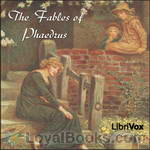 The Fables of Phaedrus
The Fables of Phaedrus
The fable is a small narrative, in prose or verse, which has as its main characteristic the aim of conveying a moral lesson (the “moral”), implicitly or, more normally, explicitly expressed. Even though the modern concept of fable is that it should have animals or inanimated objects as characters – an idea supported by the works of famous fabulists such as Aesop and La Fontaine – Phaedrus, the most important Latin fabulist, is innovative in his writing. Although many of his fables do depict animals or objects assuming speech, he also has many short stories about men, writing narratives that seem to the modern eye more like short tales than fables... | |
By: Lafcadio Hearn (1850-1904) | |
|---|---|
 In Ghostly Japan
In Ghostly Japan
This collection of 14 stories collected by Lafcadio Hearn, contains Japanese ghost stories, but also several non-fiction pieces. Hearn tries to give a glimpse into the customs of the Japanese, by giving examples of Buddhist Proverbs and explaining the use of incense and the nation wide fascination with poetry. Furthermore, he has again translated several hair-rising ghost stories, like "A Passional Karma" about the truly undying love of a young couple. | |
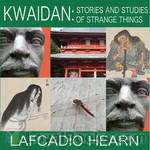 Kwaidan: Stories and Studies of Strange Things
Kwaidan: Stories and Studies of Strange Things
Most of the following Kwaidan, or Weird Tales, have been taken from old Japanese books,— such as the Yaso-Kidan, Bukkyo-Hyakkwa-Zensho, Kokon-Chomonshu, Tama-Sudare, and Hyaku-Monogatari. Some of the stories may have had a Chinese origin: the very remarkable "Dream of Akinosuke," for example, is certainly from a Chinese source. But the story-teller, in every case, has so recolored and reshaped his borrowing as to naturalize it… One queer tale, "Yuki-Onna," was told me by a farmer of Chofu, Nishitama-gori, in Musashi province, as a legend of his native village... | |
By: Anton Chekhov (1860-1904) | |
|---|---|
 House With The Mezzanine And Other Stories
House With The Mezzanine And Other Stories
Six short stories and a novella by the Russian master. (david wales) | |
 Kashtanka
Kashtanka
"Kashtanka," a shaggy-dog story penned by Anton Chekhov in seven parts and first published in 1887, relates the experiences of its eponymous heroine, a fox-faced, reddish dachshund-mix, whose name means 'little chestnut.' After her detestation of music causes her to become separated from the carpenter with whose family she had been living, Kashtanka finds herself taken up by an unusual vaudevillian and goes to live among an assortment of other intelligent animals, each of whom is observed with the characteristic empathy and humor that stamp Chekhov's work. | |
By: William Henry Giles Kingston | |
|---|---|
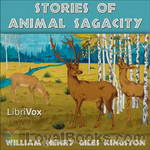 Stories of Animal Sagacity
Stories of Animal Sagacity
300+ short stories of how smart and savvy various individual animals have been seen to be, and in most cases a little moral is drawn from the story. | |
By: Jerome K. Jerome (1859-1927) | |
|---|---|
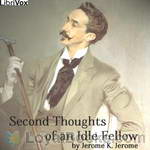 Second Thoughts Of An Idle Fellow
Second Thoughts Of An Idle Fellow
A second volume of humorous essays on various subjects, following the success of Idle thoughts Of An Idle Fellow. | |
By: Voltairine de Cleyre (1866-1912) | |
|---|---|
 Selected Letters, Sketches and Stories
Selected Letters, Sketches and Stories
Voltairine de Cleyre (November 17, 1866 – June 20, 1912) was an American anarchist. She was skilled in many subjects and wrote essays, poems, letters, sketches, stories and speeches. These are her selected letters, sketches and stories. | |
By: Edmond Hamilton | |
|---|---|
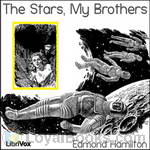 The Stars, My Brothers
The Stars, My Brothers
Edmond Hamilton (1904 – 1977) had a career that began as a regular and frequent contributor to Weird Tales magazine. The first hardcover publication of Science Fiction stories was a Hamilton compilation, and he and E.E. “Doc” Smith are credited with the creation of the Space Opera type of story. He worked for DC Comics authoring many stories for their Superman and Batman characters. Hamilton was also married to fellow author Leigh Brackett. – Published in the May, 1962 issue of Amazing Stories “The Stars, My Brothers” gives us a re-animated astronaut plucked from a century in the past and presented with an alien world where the line between humans and animals is blurred. | |
By: Robert Sheckley (1928-2005) | |
|---|---|
 Watchbird
Watchbird
3 Robert Sheckley short stories that demonstrate the breathof his fantastic imagination. In Watchbird, the question "can machines solve human problems?" is answered with a resounding YES! But there may be a few unforeseen glitches. Just a few. Warrior Race drops us into an alien race of warriors who fight in a way you will never be able to imagine until you listen. And Beside Still Waters is a gentle story that shows us a man who really wants to get away from it all ... sitting on a rock in the asteroid belt with only a robot for a friend. No girls allowed! A poignant and unsettling story to say the least. | |
By: Padraic Colum (1881-1972) | |
|---|---|
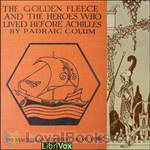 The Golden Fleece and the Heroes Who Lived Before Achilles
The Golden Fleece and the Heroes Who Lived Before Achilles
This is Irish folklorist Padraic Colum's masterful retelling of many Greek myths, focusing on Jason and the Argonauts' quest to find the Golden Fleece. He also includes the stories of Atalanta, Heracles, Perseus, Theseus, and others. | |
By: Jennie Hall (1875-1921) | |
|---|---|
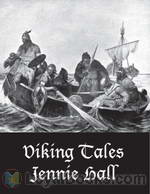 Viking Tales
Viking Tales
Viking tales are tales from Iceland, featuring the king Halfdan and his son Harald. | |
By: Cecil Henry Bompas | |
|---|---|
 Folklore of the Santal Parganas
Folklore of the Santal Parganas
This is an intriguing collection of folklore from the Santal Parganas, a district in India located about 150 miles from Calcutta. As its Preface implies, this collection is intended to give an unadulterated view of a culture through its folklore. It contains a variety of stories about different aspects of life, including family and marriage, religion, and work. In this first volume, taken from Part I, each story is centered around a particular human character. These range from the charmingly clever (as in the character, The Oilman, in the story, “The Oilman and His Sons”) to the tragically comical (as in the character, Jhore, in the story “Bajun and Jhore”)... | |
By: Fritz Leiber (1910-1992) | |
|---|---|
 Three Science Fiction Stories by Fritz Leiber
Three Science Fiction Stories by Fritz Leiber
The Moon is Green, Bread Overhead and What's He Doing In There?! Three of the best known and loved Science Fiction short stories by the wonderful Fritz Lieber. Always tongue in cheek, and always with a funny twist, Leiber deftly shows how humans will adapt to or mess up the future. In ways that only humans can. | |
By: Max Beerbohm (1872-1956) | |
|---|---|
 Seven Men
Seven Men
In order to liven up the literary history of Great Britain in the 1890s (as if Oscar Wilde, Stevenson, Kipling, Hardy, etc., were not lively enough) Max Beerbohm wrote short biographies of six imaginary writers. Though their works of course no longer exist, he leaves the impression that the literary world is really none the poorer. It is, of course, the six men themselves (Beerbohm himself is the seventh man of the title) who are worth our attention. ( Nicholas Clifford) Note that the Gutenberg edition of Seven Men is incomplete, but the missing sections may be found separately James Pethel http://www.gutenberg.org/ebooks/759 E.V. Laider http://www.gutenberg.org/ebooks/761 | |
By: Anstey, F. (1856-1934) | |
|---|---|
 The Black Poodle and Other Tales
The Black Poodle and Other Tales
This is a collection of ten humorous short stories | |
By: Stewart Edward White (1873-1946) | |
|---|---|
 Blazed Trail Stories and Stories Of The Wild Life
Blazed Trail Stories and Stories Of The Wild Life
Thirteen short stories by a popular writer of the early 20th century (not to be confused with an earlier book Blazed Trail). White's books were popular at a time when America was losing its vanishing wilderness. He was a keen observer of the beauties of nature and human nature, yet could render them in a plain-spoken style. Based on his own experience, whether writing camping journals or Westerns, he included pithy and fun details about cabin-building, canoeing, logging, gold-hunting, and guns and fishing and hunting... | |
By: Susan Glaspell (1876-1948) | |
|---|---|
 Lifted Masks
Lifted Masks
In this collection of short stories, Susan Glaspell examines the unique character of America and its people. | |
By: Cyrus Macmillan | |
|---|---|
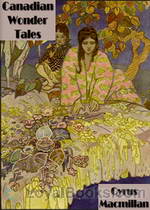 Canadian Wonder Tales
Canadian Wonder Tales
This is a collection of folk tales originating in Canada, some from aboriginal oral tradition and others due to early French, Scottish, Irish and British colonists. They are presented as “fables” though many are without obvious moral. | |
By: Wright, Orville and Wilbur (1871-1948 / 1867-1912) | |
|---|---|
 The Early History of the Airplane
The Early History of the Airplane
The Brothers Orville (1871 - 1948) and Wilbur (1867 – 1912) Wright made the first controlled, powered and sustained heavier-than-air flight, on 17th December 1903. They were not the first to build and fly aircraft, but they invented the controls that were necessary for a pilot to steer the aircraft, which made fixed wing powered flight possible. The Early History of the Airplane consists of three short essays about the beginnings of human flight. The second essay retells the first flight: "This... | |
By: Lord Dunsany (1878-1957) | |
|---|---|
 Fifty-One Tales
Fifty-One Tales
Very brief, well-crafted stories, many having surprise endings, all steeped in the dye of myth and calling to every reader's neglected imagination. | |
By: Lord Dunsany (1878-1957) | |
|---|---|
 Gods of Pegāna
Gods of Pegāna
"The Gods of Pegāna" is the first book by Anglo-Irish fantasy writer Lord Dunsany, published on a commission basis in 1905... The book is a series of short stories linked by Dunsany's invented pantheon of deities who dwell in Pegāna. It was followed by a further collection "Time and the Gods" and by some stories in "The Sword of Welleran and Other Stories". | |
 Dreamer's Tales
Dreamer's Tales
"A Dreamer's Tales" is the fifth book by Irish fantasy writer Lord Dunsany, considered a major influence on the work of H. P. Lovecraft, J. R. R. Tolkien, Ursula K. Le Guin, Michael Moorcock and others. "A Dreamer's Tales" is a collection of sixteen fantasy short stories, and varies from the wistfulness of "Blagdaross" to the horrors of "Poor Old Bill" and "Where the Tides Ebb and Flow" to the social satire of "The Day of the Poll." (text from Wikipedia articles on Lord Dunsany and "A Dreamer's Tales") | |
By: H. A. Guerber (1859-1929) | |
|---|---|
 Story of the Greeks
Story of the Greeks
This book is a collection of stories and histories about the Ancient Greeks, including many of their famous myths! | |
By: A. A. Milne (1882-1956) | |
|---|---|
 Happy Days
Happy Days
Although best known for his Winnie the Pooh stories, A.A. Milne spent years as an editor at the English humor magazine Punch. These sprightly essays were chosen from the hundreds he wrote during that period. As usual, they are funny, wry, and poke fun at almost all of our human foibles. There are 6 short one act plays that he wrote to demonstrate the 6 allowable plots for amateur playwrights and they are absolutely hilarious. The other topics run the gamut from dogs to dates. | |
By: Elbert Hubbard (1856-1915) | |
|---|---|
 Mintage
Mintage
Elbert Hubbard is best known as the author of the "Little Journeys To The Homes of Famous People". These 11 short stores show the side of him that celebrated caring, friendship love among humans. The first describes how 5 frightened orphan children from a foreign country were cared for on a railroad journey of a thousand miles; all by strangers without any planning and without a word of English being spoken or needed. He observed caring human men and women of all ages doing whatever was necessary to see they reached their destination in whatever comfort could be provided... | |
By: Eleanor H. Porter (1868-1920) | |
|---|---|
 Across The Years
Across The Years
These 18 wonderful short stories by Eleanor H. Porter, the author of Pollyanna, deal with those marvelous and maddeningly frustrating creatures: human beings. As always, Porter describes real people with sensitivity and an insight into all of their variety that makes you say "I knew someone just like that". She is able to capture the faded, but not quite extinguished, dreams of the elderly and the bright hopes of youth. The theme of this collection is how we humans deal with life and love throughout our lives, "Across the Years", no matter where we are or what era we live in. | |
By: Mary E. Wilkins Freeman (1852-1930) | |
|---|---|
 Evelina's Garden
Evelina's Garden
This is a long short story from 1899, approximately 95 minutes more or less, about a mysterious woman living virtually alone on the outskirts of a small New England town in a mansion with a magnificent garden. (Introduction by BellonaTimes) | |
By: Emerson Hough (1857-1923) | |
|---|---|
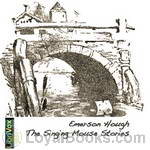 The Singing Mouse Stories
The Singing Mouse Stories
The singing mouse tells tales of nature in songs. This book is for those who want to know how the mountains ate up the plains, what the waters said or where the city went. | |
By: Percy Fitzpatrick | |
|---|---|
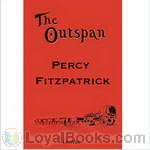 The Outspan: Tales of South Africa
The Outspan: Tales of South Africa
Six poignant short stories reminiscent of life as a transport rider in the Transvaal veld in the days of the gold rush in South Africa at the end of the 19th century. From an early age Fitzpatrick believed that life should be enjoyed to the full and his honest and often moving style of writing leaves one richer for having known him. | |
By: Asa Don Dickinson (1876-1960) | |
|---|---|
 Good Cheer Stories Every Child Should Know
Good Cheer Stories Every Child Should Know
This charming book has many stories that deal mostly with the holiday of Thanksgiving, perfectly suited for family listening and reading. and gathers in one volume tales of tasty turkeys, festive parties, generous gestures, and holiday cheer. The stories featured include works by such writers as Harriet Beecher Stowe, George Eliot, Nathaniel Hawthorne, and others. So if you want to listen to some great stories that bring out gratitude for life and a thanksgiving attitude, here are a bunch of the best. | |
By: Mary E Wilkins Freeman | |
|---|---|
 Edgewater People
Edgewater People
A collection of interrelated short stories concerning the townfolk of a few small New England villages at the turn of the last century. | |
By: Marguerite of Navarre (1492-1549) | |
|---|---|
 Heptameron of the Tales of Margaret, Queen of Navarre, Vol. 1
Heptameron of the Tales of Margaret, Queen of Navarre, Vol. 1
THE HEPTAMERON, first published posthumously in 1558, is divided into seven complete days containing 10 stories each, and an eighth day containing only 2 stories. The stories, many of which deal with love and infidelity, resulted in "accusations of looseness" by critics of the day. The author, Margaret of Navarre (also known as Margaret of Angoulême) became an influential woman in the intellectual and cultural circles of the French Renaissance. From an 1892 essay by the translator George Saintsbury: "In so large a number of stories with so great a variety of subjects, it naturally cannot but be the case that there is a considerable diversity of tone... | |
By: Mildred Aldrich (1853-1928) | |
|---|---|
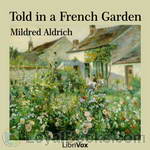 Told in a French Garden
Told in a French Garden
American friends begin to summer in a beautiful French country house when WWI breaks out. They decide not to evacuate as the war encroaches. Their interactions are interwoven by the stories that they take turns telling after dinner each night to stimulate their nightly conversation and distract their thoughts from the war. | |
By: Anne Wales Abbott ed. (1808-1908) | |
|---|---|
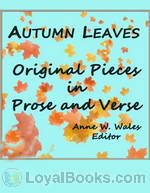 Autumn Leaves, Original Pieces in Prose and Verse
Autumn Leaves, Original Pieces in Prose and Verse
The pieces gathered into this volume were, with two exceptions, written for the entertainment of a private circle, without any view to publication. The editor would express her thanks to the writers, who, at her solicitation, have allowed them to be printed. They are published with the hope of aiding a work of charity,—the establishment of an Agency for the benefit of the poor in Cambridge,—to which the proceeds of the sale will be devoted. | |
By: Arthur B. Reeve (1880-1936) | |
|---|---|
 Poisoned Pen
Poisoned Pen
The many adventures of Professor Craig Kennedy were chronicled by Arthur B. Reeve (October 15, 1880 - August 9, 1936). Reeve was an American mystery writer who created 82 Craig Kennedy mystery stories. The stories have a very Sherlock Holmes type feel, In fact Kennedy has been referred to as the "American Sherlock Holmes". Along with his reporter friend, Walter Jameson, Kennedy solves many crimes and unveils mysteries using science. This book contains twelve of Professor Kennedy's adventures. The interesting thing about these stories is Kennedy uses newly discovered science from his time period, which we take for granted today... | |
By: Pansy (1841-1930) | |
|---|---|
 Divers Women
Divers Women
A collection of short stories, highlighting some of the best and worst characteristics we women are capable of in our Christianity and in our home life. | |
By: Various | |
|---|---|
 International Short Stories Volume 3: French Stories
International Short Stories Volume 3: French Stories
The third book of a three volume anthology of international short stories, we now turn to French stories. Authors include Honoré de Balzac, Voltaire, Guy de Maupassant, Victor Hugo and more. Compiled and translated by Francis J. Reynolds. | |
By: L. Adams Beck (1862-1931) | |
|---|---|
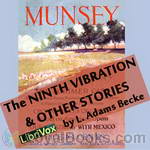 The ninth vibration and other stories
The ninth vibration and other stories
This is a collection of the following short stories: The Ninth Vibration -- The Interpreter : A Romance of the East -- The Incomparable Lady : A Story of China with a Moral -- The Hatred of the Queen : A Story of Burma -- Fire of Beauty -- The Building of the Taj Majal -- How Great is the Glory of Kwannon! -- The Round-Faced Beauty. Many of them are romantic, some of them are fantasy and others are occult fiction.(Introduction by Linda Andrus) | |
By: Francis Hopkinson Smith (1838-1915) | |
|---|---|
 Little Gray Lady
Little Gray Lady
As every Christmas for the last 20 years, the Little Gray Lady lights a candle in her room and spends the evening alone, thinking of a great mistake she has made so long ago. This year, however, things are to play out differently.. | |
By: Mary Louisa Molesworth (1839-1921) | |
|---|---|
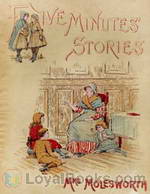 Five Minutes' Stories
Five Minutes' Stories
This is a collection of short stories for children. Listeners may wish to have a look at the text at Project Gutenberg to see the many illustrations accompanying each story. | |
By: Lord Redesdale (1837-1916) | |
|---|---|
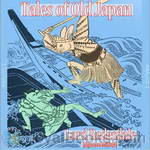 Tales of Old Japan
Tales of Old Japan
Tales of Old Japan by Lord Redesdale is a collection of short stories focusing on Japanese life of the Edo period (1603 - 1868). It contains a number of classic Japanese stories, fairy tales, and other folklore; as well as Japanese sermons and non-fiction pieces on special ceremonies in Japanese life, such as marriage and harakiri, as observed by Lord Redesdale. The best know story of these is "The Forty-seven Ronins" a true account of samurai revenge as it happened at the beginning of 18th century Japan... | |
By: Edric Vredenberg (1860-?) | |
|---|---|
 My Book Of Favourite Fairy Tales
My Book Of Favourite Fairy Tales
This is a collection on well-known, favorite fairy stories, most of which we all grew up with. They were edited and retold in this volume. | |
By: Alicia Catherine Mant (1788-1869) | |
|---|---|
 Blue Jar Story Book
Blue Jar Story Book
This is a collection of 6 delightful stories about children by some of the best authors of the period: Charles Lamb, Mary Lamb, Maria Edgeworth and Alicia Catherine Mant. These stories are well written and although they feature children and their escapades, clearly can be enjoyed by adults as well if not more. | |